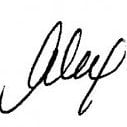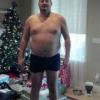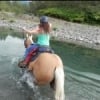Search the Community
Showing results for 'alcohol'.
Found 17,501 results
-


Bittersweet Birthday (of course it's in my head!)
lsereno replied to Husky2Healthy's topic in POST-Operation Weight Loss Surgery Q&A
Happy birthday! I think others are right and you will be able to eat a little more later on down the road. Everyone heals at their own pace. I already can eat a bite of just about anything, as long as it's not in the morning. food and me are not friends till lunch time. So that allows me to feel pretty normal. Like you, I love eating out and all that goes with that. The San Francisco Bay Area is very food-focused. I eat out a lot. I order an appetizer, or share a main dish with someone else. Only thing I am missing right now is alcohol. But I am willing to wait. Lynda -
Since a lot of people, pre-op and post-op, ask about alcohol consumption, I thought I'd throw out my experience. Last night, we attended John's squadron Christmas party. I wanted to try a glass of wine. They had a decent assortment, and I chose a Kendall Jackson Reisling. I drank about 1/2 the glass before our meal while socializing, zero issues, no burning, pain, or discomfort. Then, ate, 3 bites of prime rib, 3 bites of the stuffed chicken, about 4oz of mashed potatoes with gravy, and 3 or 4 broccoli florets. After dinner, I had a few sips of coffee, then finished the glass of wine. I also took 3 small bites of cheesecake, and John ate the rest. Everything tasted very good, and around 9:30, I decided to have another glass of wine. Again, no ill effects, no burning, no pain, and I never caught a "buzz". Just a normal little relaxed feeling that I got pre-op from wine. I was really hesitant to try anything alcoholic, but am happy to report that I was able to enjoy a couple glasses of wine without issues.
-


Just starting out, but worried about future/choice already
JerseyGirl68 replied to mj0920's topic in PRE-Operation Weight Loss Surgery Q&A
Work place chatter is always hard. If you don't share it with anyone, it should be kept quiet. Your managers are not allowed to ask about procedures etc. If it is your time to take off, then your privacy should remain in tact. I am 16 months out, and though I haven't had any foods I can't tolerate, there are foods I avoid. Trigger foods for me. chips, etc. go down way too easy, and regardless of our restriction, you can eat around your sleeve if you choose to. It's not a cure all. Just a tool, we have to do our part to be as successful as we can be. I enjoy an occasional drink, but I didn't for a while. I'm not going to be a hypocrite and tell you not to drink, just giving my experience and how I proceeded. Aside from the empty calories, our bodies will burn the alcohol first before fat. And I have noticed the alcohol now has a much quicker effect on me. I avoid drinking sepcifically in "tailgate" situations because I don't want to make bad choices worse if I'm not on my game. Everyone is different and everyone's triggers are different. You have to manage your choices and do what is best for you. I do have days where I am not as strict, but I track it all and account for it. All that being said, one day is not going to ruin anyone's progress overall. I specifically had this procedure becuase I didn't want to diet for the rest of my life anymore. I wanted to have things in moderation and get my eating and choices under control. When I have party or social situations, I bring a dish I can enjoy. There are tons of healitier choices out there. No reason you can't enjoy your social gatherings as much as ever. food doens't have to be the focus. I had surgery on a Tuesday and was back at work Monday. I'm in an office situation so no lifiting required. Best of luck to you!! Great progress so far! -


Must Watch VIRAL Video! It Starts Today – How obesity surgery helps people reclaim their lives!
MeAndTinyTina replied to Alex Brecher's topic in General Weight Loss Surgery Discussions
Hi - I was disappointed that the video did not include anyone who had been overweight their entire life. I think that is the most common profile of obese adults. Everyone I currently know who is obese has been so since high school or before, I went on my first real diet at age 6. I am 56 and this week was the first time in my entire life that I did not shop in the plus size (or, as it was known 50 years ago for children, the "Chubette" department). And, at 207 lbs now, the only reason I am now a large in some things and not plus size is because Americans are so big that they've made the sizes larger! The video made me feel that I don't have a legitimate reason to be fat. I didn't have fertility treatments. I was never a professional athlete or military person who had to learn to eat for a new lifestyle. But I do know about nutrition, about exercise -- I am smarter than the average bear and it didn't do me any good! No one has worked harder or longer at weight loss than me -- except for the millions of other regular people who have also been fat all their life! Can I blame genetics? Sure, why not? But this video message said that you had to have a good reason to be fat and the implication is that only those people, those legitimate obese people deserved weight loss surgery. How about recognizing that life is different now for most Americans - there are less physical jobs, even school is more sedentary as less kids walk to school, flavor enhancers in our food has altered our tastes, etc, etc. I don't think we need to showcase only those weight loss surgery patients who are deemed presentable enough to be spokespeople for the cause. This attitude plays right into the crazy and punitive insurance policies around WLS. Denying so many people who need it, yet paying, without question for rehab for alcoholics or drug users. Or denying people if they go below a BMI of 40 while they are in the pre-op phase, or cancelling surgery if they gain a single pound! It's the same judgmental, condescending, belittling attitude that predominates society in general, and the medical profession in particular, around obesity. A colleague of mine at work had her VSG surgery scheduled earlier this week but it was cancelled because they found a cyst in her lungs. She has been complaining to doctors for ten years about pain in her chest - to the touch -- not just simply being out of breath. The only answer she got was "loose weight". Not a breathing test or even a simple X-ray - just a lecture. Now she is facing thoracic surgery and G-d knows what else! If doctors had treated her like a grownup instead of a non-complaint child, she would have had this taken care of years ago. it's the same attitude as this video -- some fat people are worthy and some are not. I am very happy that I had the surgery, but I am truly regretful that I didn't have it when I was much younger. I have suffered in my personal life and in my career and while I take responsibility for my decisions, I do not take responsibility for the cavalier and cruel attitude of the medical profession that for most of my life, did not give a damn. Regards, Ellen -


2018 Study: bariatric surgery only partially improves gut microbe diversity
myfanwymoi replied to Born in Missouri's topic in General Weight Loss Surgery Discussions
I love these forums: where else would you get bugs, poo trandplants, insect eating and discussions of grilling salmon in the same conversation! Imma look at the gut stuff too. Find me some fermented stuff. Question about kefir I'm told it contains alcohol and I'm abstinent from that for very good reasons. Would kefir wake up my booze monster? Is really rather not, you see!!! But I would like to try some new foods. -
Im pretty sure the net carbs are after you subtract the Fiber and any sugar alcohol carbs.
-


Well I suppose I should introduce myself =)
Cozy21 replied to moonlightdreamer's topic in Tell Your Weight Loss Surgery Story
Hello moonlightdreamer and welcome! Let me start by saying that you are not alone. I know that I have had an unhealthy relationship with food for the past decade and actually found that it stemmed from my coping with my moms alcoholism. It didn't affect me until I became a mother. I made a promise to myself that I wouldnt drink or become an alcoholic; I didn't realize that I was actually turning into a foodaholic! Like you, it wasn't until I was confident with my progress in therapy that I decided to move forward with the surgery. In the past my weight has fluctuated between 80-100 lbs each year! Eek! I was banded two days ago and I am excited for this journey! I commend you on seeking this tool for your journey as well. You have made a major decision that will dramatically change your life for the better. Keep us posted! Good luck on your journey! -Cozy:) -
Here's a brief synopsis of what I experienced - 500 questionnaire covering my outlook on life, how I viewed the people around me, my feelings about drugs/alcohol and how much I used them. Many of the questions were asked multiple times, but in different ways. Then I had a 20 minute interview with the psychologist. Basically he wanted to find out if I was fully informed about the surgery, if I had realistic expectations, and if I was committed to this new eating/lifestyle - because the Sleeve is not a magic pill, you still have to have the discipline to eat right and exercise post-surgery.
-
I have high blood pressure and was not denied surgery. I take 160mg of Diovan and 12.5mg of hydrochlorothiazide daily to keep my blood pressure under control. On a good day my BP is 135/72 but it often goes higher. I agree about the consumption of caffiene...mine is much higher on days that I drink more than 2 cups of coffee. I would inquire about different blood pressure meds...as the first script that I had (can't remember what it was) wasn't nearly as effective as the Diovan. Are you exercising? Physical activity often decreases blood pressure. In addition to exercise you might want to decrease the amount of sodium that you are taking in and take note of any over the counter medications that you are taking. Causes of High Blood Pressure In most cases of high blood pressure, the American Heart Association says there is no one identifiable cause. This kind of high blood pressure is called primary hypertension or essential hypertension. It is usually a combination of factors, such as: Weight. The greater your body mass, the more pressure there is on your artery walls. That's because more blood is produced to supply oxygen and nutrients to tissues in your body. Activity level. Lack of physical activity tends to increase heart rate, which forces your heart to work harder with each contraction. Tobacco use. Chemicals in cigarettes and tobacco can damage artery walls. Sodium intake. Excessive sodium in the diet can result in Fluid retention and high blood pressure, especially in people sensitive to sodium. Potassium intake. Low potassium can result in elevated sodium in cells, because the two balance one another. Stress. Stress can raise blood pressure. Alcohol consumption. Excessive alcohol intake can, over time, increase the risk of heart disease. Age. The risk of high blood pressure increases as you get older. Family history. High blood pressure often runs in families. Natural Remedies for High Blood Pressure Lifestyle changes and natural remedies may help to control high blood pressure, but your doctor may also recommend medication to lower high blood pressure. It is important to work with your doctor, because untreated high blood pressure may damage organs in the body and increase the risk of heart attack, stroke, brain hemorrhage, kidney disease, and vision loss. See a drawing of a hypertensive heart. Coenzyme Q10 (CoQ10) There is some evidence that the supplement coq10 may help to reduce high blood pressure. A 12 week double-blind, placebo-controlled trial of 83 people with systolic hypertension examined the effect of CoQ10 supplements (60 mg twice daily). After the 12 weeks, there was a mean reduction in systolic blood pressure of 17.8 mm Hg in the Coq10-treated group. Another study conducted at the University of Western Australia looked at the effect of CoQ10 on blood pressure and glycemic control in 74 people with type 2 diabetes. Participants were randomly assigned to receive either 100mg CoQ10 twice daily, 200mg of the drug fenfibrate, both, or neither for 12 weeks. CoQ10 significantly reduced systolic and diastolic blood pressure(mean reduction 6.1 mm Hg and 2.9 mm Hg respectively). There was also a reduction in HbA1C, a marker for long-term glycemic control. To learn more about CoQ10, read the Coenzyme Q10 (CoQ10) fact sheet. Garlic In a meta-analysis of seven randomized controlled trials of garlic supplements, three trials showed a significant reduction in systolic blood pressure and four in diastolic blood pressure. Researchers concluded that garlic powder supplement may be of clinical use in patients with mild high blood pressure. Garlic supplements should only be used under the supervision of a qualified health practitioner. Garlic can thin the blood (reduce the ability of blood to clot) similar to aspirin. Garlic may interact with many drugs and supplements such as the prescription "blood-thinners" drugs such as Coumadin (warfarin) or Trental (pentoxifylline), aspirin, Vitamin E, gingko. It is usually recommended that people taking garlic stop in the weeks before and after any type of surgery. To learn more about garlic, go to the articles about garlic. Hawthorn The herb hawthorn is often used by traditional herbal practitioners for high blood pressure. In a randomized controlled trial conducted by researchers in Reading, UK, 79 patients with type 2 diabetes were randomized to receive either 1200 mg of hawthorn extract a day or placebo for 16 weeks. Medication for high blood pressure was used by 71% of the patients. At the end of the 16 weeks, patients taking the hawthorn supplement had a significant reduction in mean diastolic blood pressure (2.6 mm Hg). No herb-drug interactions were reported. Fish oil Preliminary studies suggest that fish oil may have a modest effect on high blood pressure. Although fish oil supplements often contain both DHA (docohexaenoic acid) and EPA (eicosapentaenoic acid), there is some evidence that DHA is the ingredient that lowers high blood pressure. Learn more about fish oil. Folic acid Folate is a B vitamin necessary for formation of red blood cells. It may help to lower high blood pressure in some people, possibly by reducing elevated homocysteine levels. One small study of 24 cigarette smokers found that four weeks of folic acid supplementation significantly lowered blood pressure. Learn more about folic acid.
-
Nutrition and Dietetic Department Diet before your Obesity Surgery In preparation for your surgery it is important that you follow a special diet for 10 days prior to your operation. The diet must be low in fat, sugar and carbohydrate and is very restricted. The purpose of the diet is to reduce the size of your liver and will make your operation easier. Daily allowance 2-3 pints of semi skimmed milk 2 diet yoghurts – natural or fruit flavoured 3- 4 portions of fruit (you are allowed all varieties but try to include a banana, orange or grapes each day) Sugar free Jelly (optional) Low calorie vegetable soup is also allowed in moderation. Drinks Water, tea, coffee, and low calorie drinks or squashes are allowed freely. Sweeteners are allowed 1 small glass of fruit juice (orange, pineapple or tomato) No other foods should be eaten Alcohol is not allowed
-


Drank way too much alcohol.. HELP!
Alexandra replied to miosa5073's topic in LAP-BAND Surgery Forums
Alcohol doesn't affect your band in any way that I know of, Mio. There are no special harms that can come to you by drinking while banded, other than the extra calories and risk of overeating while impaired. Relax! -


What is off limits after post-op diet
Berry78 replied to Bary's topic in General Weight Loss Surgery Discussions
I eat a 4oz steak all the time.. after the first 2 months and I was cleared. Might not finish it, but that's a different story. Beer is carbonated and has alcohol, so should be off menu for at least 6 months to a year. After that it's a question of whether you still like it, or whether it likes you. I eat sweets on special occasions, but mostly they don't taste as good. In general you'll be able to eat anything.. but whether you can tolerate it, like it, or should eat it.. those are different questions. -
When I do intermitten fasting I stop eating foods but I may have a cup of tea, or coffee before my workout in the morning. I was taught that you can drink whatever you want but as always limit your sugar intake to about 60g during an entire fast (16-24 hours) and If you must eat something let it be no more than 100 calories within an entire fasting period. NO ALCOHOL I generally stick to Water, tea or coffee. It has helped me finally reach my water intake, because I'm usually still awake 6 hours after I begin a fast.
-


What is off limits after post-op diet
blizair09 replied to Bary's topic in General Weight Loss Surgery Discussions
At one year post-op, I have cut out pasta, rice, and carbonation. I will probably never have any of those things. I still follow a keto way of eating; therefore, I keep my carbs below 25 grams per day. So, I have little to no sugar. That is my choice, not my body's demands or anything. As far as alcohol goes, I have some sort of alcohol (usually vodka, water and Crystal Light Lemonade powder that I take to the bar with me) just about every weekend, and when I travel for work (60%-70% of the time), I often have a glass or two of red wine with dinner. I have found that my tolerance is now back to about where it was before the surgery. I have absolutely no issue with the alcohol whatsoever. Like @OutsideMatchInsidesaid, I just allow for the calories on days that I am going to have drinks. (Though, to be honest, I need to get my calories up some to make the weight loss stop, so I haven't been as much of a stickler about it lately.) I haven't tried beer, mostly because of the carbonation issue. And as much as I miss it, and I do, I've adjusted to drinking other things. For the record, I first had alcohol at three months post-op, and there has never been an issue. I've lost 217 pounds (from almost 400 pounds), and am happily at goal (180 pounds). YMMV. -
Rimonabant hcl is fda approved. Not on the doctors lists so theres no kick backs for him to push but if you ask for it it is available. My wife quit smoking in a week because it made her. Heres the true background information: Rimonabant also known as SR141716, is an anorectic drug primarily used for comprehensive anti-obesity treatment. It is an inverse agonist for the CB1 cannabinoid receptor.[1] The primary method of action is through reduced caloric intake, due to the anti-hunger effects of rimonabant. An inverse agonist refers to a chemical that binds to a receptor and, when compared to a known agonist for that receptor, shows approximately the same affinity and exhibits roughly inverse effects of one or more primary effects of the agonist.[2] One of the primary effects of cannabinoid receptor agonists is an increase in appetite; rimonabant reduces appetite, demonstrating an inverse effect. Some effects of rimonabant are admittedly under-studied or not well known or explorer; for example, rimonabant-dosed mice reduced voluntary wheel-running behavior when compared to a control group.[4] Rimonabant does have other uses besides weight loss; though the mechanism is not well understood it has been demonstrated to increase probability of quitting smokers by 50%: From the preliminary trial reports available, rimonabant 20 mg may increase the odds of quitting approximately 1(1/2)-fold. Adverse events include nausea and upper respiratory tract infections; the risk of serious adverse events is reported to be low. However, there is current concern (August 2007) over rates of depression and suicidal thoughts in people taking rimonabant for weight control. The evidence for rimonabant in maintaining abstinence is inconclusive. Rimonabant 20 mg may moderate weight gain in the long term.[5] Researchers hypothesized, in keeping with the inverse-agonist nature of rimonabant, that (because cannabinoids nearly univerally impair memory), rimonabant may improve memory; this is borne out thus far in rat studies: The positive influence of rimonabant on performance indicated that the action of endocannabinoids was to reduce SmR code strength, resulting in trials that were at risk for errors if the delay exceeded 10 s. Thus endocannabinoids, like exogenously administered cannabinoids, reduced hippocampal encoding necessary to perform long-delay trials. The findings therefore indicate a direct relationship between the actions of endocannabinoids on hippocampal processes and the ability to encode information into short-term memory.[6] Researchers speculate that due to the pervasive role of the endocannabinoid system in the reward (and therefore addiction-perpetuating) system, rimonabant might be successfully used to treat other addictions besides nicotine.[7] Rimonabant has been demonstrated to successfully block the psychological effects of cannabis use without interfering with the physiological effects.[8] Respective excerpts follow: Recent studies have shown that the endocannabinoid system is involved in the common neurobiological mechanism underlying drug addiction. This system participates in the primary rewarding effects of cannabinoids, nicotine, alcohol and opioids, through the release of endocannabinoids in the ventral tegmental area. Endocannabinoids are also involved in the motivation to seek drugs by a dopamine-independent mechanism, demonstrated for psychostimulants and opioids. The endocannabinoid system also participates in the common mechanisms underlying relapse to drug-seeking behaviour by mediating the motivational effects of drug-related environmental stimuli and drug re-exposure. In agreement, clinical trials have suggested that the CB(1) cannabinoid antagonist rimonabant can cause smoking cessation. Thus, CB(1) cannabinoid antagonists could represent a new generation of compounds to treat drug addiction.[7] Single oral doses of SR141716 produced a significant dose-dependent blockade of marijuana-induced subjective intoxication and tachycardia. The 90-mg dose produced 38% to 43% reductions in visual analog scale ratings of "How high do you feel now?" "How stoned on marijuana are you now?" and "How strong is the drug effect you feel now?" and produced a 59% reduction in heart rate. SR141716 alone produced no significant physiological or psychological effects and did not affect peak THC plasma concentration or the area under the time x concentration curve. SR141716 was well tolerated by all subjects. CONCLUSIONS: SR141716 blocked acute psychological and physiological effects of smoked marijuana without altering THC pharmacokinetics. These findings confirm, for the first time in humans, the central role of CB1 receptors in mediating the effects of marijuana.[8] Citations: [1]Fong TM, Heymsfield SB (September 2009).Cannabinoid-1 receptor inverse agonists: current understanding of mechanism of action and unanswered questions. Int J Obes (Lond) 33 (9): 947–55. [2]Kenakin T (2004). Principles: receptor theory in pharmacology. Trends Pharmacol. Sci. 25 (4): 186–92. [3]Suicide risk fears over diet pill. BBC News. 15 June 2007. (URL: http://news.bbc.co.uk/2/hi/health/6755665.stm). [4] Keeney BK, Raichlen DA, Meek TH, Wijeratne RS, Middleton KM, Gerdeman GL, Garland T, Jr. Differential response to a selective cannabinoid receptor antagonist (SR141716: rimonabant) in female mice from lines selectively bred for high voluntary wheel-running behavior. Behavioural Pharmacology 19: 812–820. 2008. [5] Cahill K, Ussher M. Cannabinoid type 1 receptor antagonists (rimonabant) for smoking cessation. Cochrane database of systematic reviews (On[line) (4): CD005353. 2007. [6]Deadwyler SA, Goonawardena AV, Hampson RE. Short-term memory is modulated by the spontaneous release of endocannabinoids: evidence from hippocampal population codes. Behavioural pharmacology 18 (5-6): 571–80. 2007. [7]Maldonado R, Valverde O, Berrendero F. Involvement of the endocannabinoid system in drug addiction. Trends Neurosci. 29 (4): 225–32. 2006. [8]Huestis MA, Gorelick DA, Heishman SJ, et al. Blockade of effects of smoked marijuana by the CB1-selective cannabinoid receptor antagonist SR141716. Arch. Gen. Psychiatry 58 (4): 322–8. 2001.
-


How much willpower does it take?
Tiffykins replied to Estella's topic in PRE-Operation Weight Loss Surgery Q&A
I can say that the removal of my ravenous hunger, and ability to gorge myself with copious amounts of food and beverages has been the key to my success. However, this is a reply to another topic I posted a couple of days ago. This pretty much sums up my experience, and my mindset on long term success with VSG. I have been maintaining my weight loss VERY EFFORTLESSLY at the age of 34 for almost a year. I have a 5lb bounce around on the scale any given week. I can tie it to my indulgences of high sodium foods, and my "girls nights out" with copious amounts of alcohol. I do not ever get in any formal exercise and have NOT for a solid year. I've had spurts here and there of working out at home for a week to 10 days, but nothing consistent at all. I honestly I do eat anything and everything I want. Here's the kicker, I don't want to eat a lot of junk food. Why? Because my body runs best, I feel best physically when I feed my body a nutrient dense, Protein full diet, BUT I eat Cookies, chips, pretzels, rice, bread, Pasta all in moderation. Of course, about 85% of the time, I eat protein first, but sometimes all I want is some veggies. I do not count anything other than protein and calories now. I keep white carbs in moderation to some degree, but if I want mashed potatoes and gravy, guess what 1/2 cup of mashed potatoes and a little gravy didn't make me FAT, 4 cups of mashed potatoes with gravy on top of a 12oz ribeye with mac-n-cheese, 3 dinner rolls, and 3 glasses of sweet ice tea made me fat. Moderation is the key. I will add that I have zero metabolic issues, nor is my body sensitive to carbs. I do not get the "eat a carb, crave a carb" nor am I an emotional eater. Therefore, going into this, I feel I beat the curve quite a bit. I was a volume eater. The sleeve will work just like any other weight loss surgery works. RNY and DS can be considered failures as well. Not one single weight loss surgery is bullet proof. So, a tool working long term is only as successful as the person using the tool. Just like a hammer to a nail. You can choose to keep your eyes open, steady your arm, and aim with precision as you go to drive that nail in with just a couple of dings, or you can wield that hammer blindfolded, with a swagger in your swing, and you'll more than likely miss the nail, hit your finger or dent the wood. Make sense? ? ? I will add that I am eating the same amounts currently that I was eating a year ago, but that quantity is double what I could at 2-3 months. The sleeve matures over time. There is minimal stretching. When I say double amounts, I was able to eat 2oz dense protein at 2-3 months out, today I can get in about 4-5oz of dense protein with a couple bites of veggies. You can cheat any of the surgeries, and the sleeve can be eaten around. I know the tricks, I employ them on occasion. Drinking warm fluids or having a glass of wine with my meal relaxes my stomach, therefore I can fit a bit more in, a bit more = 1-2 ounces of mashed potatoes, or mac-n-cheese on top of my chicken. To this day, I can NOT eat an entire chicken breast without stretching my meal out over 40 minutes. I can barely eat 1.5-2 poached eggs. What I'm saying is that there is a max capacity to the sleeve, but the restriction you have the first 6 months will change, ENJOY that time, maximize your weight loss, and become diligent with changing your lifestyle. Any weight loss surgery success is defined by either compliancy or complacency and with some mechanical failures on the other surgery types you can find that a specific tool "didn't work properly". It's a choice you make. No one else, the surgery doesn't fail UNLESS it's not performed properly because there is nothing mechanical to fail with the sleeve like there is with the band or RNY. The other issues can be metabolic issues, or carb sensitivity, or some people lose differently. Stoma and pouches stretch, malabsorption of calories, fats and carbs stop after the adaptation process occurs in the intestines, and then RNY patients are having to rely on restriction only with a stretchy pouch, a blind stomach left behind making ghrelin at a higher level vs. Sleeve patients. With the band, the list of issues with it are long, detailed, but the reasons the band can and does fail are numerous. Pouch stretching, not being able to get a decent fill, then there's the physical issues with the band itself. I can go on and on. But, I know plenty of VSG'ers that are 2-4 years out (mainly on obesityhelp.com) that share my opinion on weight regain with VSG, their experiences are pretty similar to mine. There are several out there maintaining fairly effortlessly as well, and live a life of moderation. I've seen 20-40lb weight regain on a couple of patients that are 3-4 years out, and every time, they admit, I quit eating the proper foods, life happened and I turned to my old friend for comfort, or they just gave up and expected to eat ding dongs and hos hos without consequence. Most naturally thin women I know don't eat packages of hos hos on a regular basis. Most naturally thin women do watch what they eat, and do not shovel shitpots of craptastic food into their body without consequence. At least none of my naturally thin friends can eat like I did pre-op and not see weight gain. -
Hi Suzanne, Im sure u will do well. I have big problem with chicken too. But it I cut them to pea size, I find it easier to go down. I tend to eat more cottage mince pie, lasagne and fish pie. It goes down easier. Try them. U r right, the last 1 stone is the hardest. But Im not worried too much cos Im not putting them on. I know I can go down the last stone if I cut down my desert and alcohol drink, but Im enjoying size 14/16 for a while and no hurry to go down to size 14 and I definately do not want to go down size 12 as my boobs will dissappear.
-
So I'm THREE days away from my surgery...more than a year into this program.my surgery is covered by my state insurance and I have complied to every criteria they have laid out. 6 months of nutrition classes, endoscopy, psych testing, quit smoking, don't do druids, don't drink, gave up coffee, lost 49 lbs, got the IVC filter...and 4 days before the surgery, they decide because I mentioned once in one of my many doctor visits in the past 6 months that I drink occasionally, that I did not follow the criteria for my state to cover the surgery. The thing is. I haven't had a drink, but I have consumed alcohol at random points in my life...weddings...party...once in a blue moon. I had to practically beg the lady at my state insurance co to believe me and I got an "I'll email the decision team and we will let you know." For real? Can this be before I start the Clear liquids diet on Wednesday and are you trying to test me??? Ugh. Thanks for letting me vent.
-
Did a holiday night on the town with a couple of girlfriends. I outweigh em both by at least 30#, but I got so hammered on the same amount they drank. We were safe and nothing bad happened but I feel awful today. Our uber driver sent us a text saying what a fun night HE had-ha. Apparently I told him all the gritty details of the burlesque show we saw and other adventures which he found entertaining. For some reason I let some guy talk me into dancing at the last place of the night. I remember making him promise to not let me fall down...gross, don't know why anyone would want to dance with me in that state. My friends said I looked pretty good, but it was very odd that I was wearing my friend's winter scarf out there dancing with a big tall guy who had a pretty good hold on me. Sheesh. Tequila may make your clothes off, but apparently gin makes me put more on. Anyway, trust me when I tell you that the sleeve changes the way your body handles alcohol. I did eat some dinner, but not enough because the drinks hit me hard. I changed my clothes into jammies when we got back to my friends house, I guess we danced more in the living room and I seemed "ok" but I don't have recall of things that happened after we closed the last dancehall. Good thing I am a sweet and happy drunk because I clearly was not in control of myself. I have no idea how people do this regularly.
-


How does this work, again?
Uncle Ted replied to Uncle Ted's topic in POST-Operation Weight Loss Surgery Q&A
2MuchFun, Thanks for this video! I also watched the others associated with it and all I can say is: "Wow - lots of what's in there is counter to what I was told or read earlier". To summarize for others (and to explain my questions and concerns): There's no "pouch" that holds a meal. Instead the full feeling comes from many iterations of the espophagus squeezing food, bite by bite, through the band which signals satiety to the brain. Makes way more sense. Drinking during meals is fine, alcohol included. I was under the impression we were to wait 2 hours post meal to drink anything. 3 meals/day or less. Given that I'm supposed to get 1500 cals down, the only way I can see doing so when each should only include 1/2 cup of food is to supplement with Protein drinks and/or alcohol. If these vids aren't sticky'd, they should be (I didn't see them). Stuff like this is way more useful to me when I understand the what's, why's and how's. Beautiful! Thanks again! -
I would follow your surgeon's instructions. Each surgeon has different experiences w/different patients and base their instructions on those personal experiences. Mine is strict about alcohol use because they've seen transfer addictions and liver failure (resulting in death) in patients. He also prefers chewable Vitamins and calcium for life, but I can swallow any pill the size of a Tylenol tablet or smaller. Some keep you on fluids longer and probably have reasons for it. Whatever the differences in our instructions we should each follow our own surgeons instructions - we chose them, we trust them, so we should do as they say. Just my thoughts on it. :-)
-


Let's Dish!!! Do You Still Like To Cook and Interact With Food?
FluffyChix replied to FluffyChix's topic in General Weight Loss Surgery Discussions
Sure...its the overeating her sleeve which I'm concerned about. LOL. I just am trying to figure out for my personal situation, the degree that I will have to go to keep me from overeating my pouch. But I also suspect rich foods, food obsession, and alcohol played a contributing roll in Carnie's regain. I know weight gain with kids is a real issue and that it is doubly hard to lose it afterward...but I somehow think the first part of this is more in play? @BDMEPretty much, our food requirements/limits are the same. Slightly smaller for pouch v. sleeve but it's essentially a similar journey. My vitamin requirements are set in stone and different from a VSG, though! -
True, if you can't control yourself. I was a weekend drinker but as soon as I started my first nutritional session I stopped cold turkey. It's not worth my health. I plan to have wine March 15th, my BIRTHDAY. So if anyone is a alcoholic or borderline - STAY AWAY. I do understand & respect your answer : )
-

.thumb.jpg.db4b34feb108f29e7b236cddeeadd8a2.jpg)
Will I ever have my favorites again ??
liveaboard15 replied to PM2022's topic in Gastric Sleeve Surgery Forums
I had surgery on April 18th. I have had caffeine without issue. Tho they do say give it a few weeks. The reason is caffine causes dehydration. But yea you need to heal up. Trust me i had regrets too after surgery. Missing all my favorite foods. Realizing that food was a great joy in my life, Going out with friends, Going to get the newest thing to arrive at Taco Bell or Pizza hut lol. Eventually i hope to be able to eat some of the stuff again. Like say mcdonalds.. No i wont be able to eat a double quarter pounder anymore. But i hope a happy meal lol. Just have to learn to eat very slow. 30 minutes per meal minimum, wait to drink water a half hour after eating. As for beer. I would be waiting a while before that. but you can have alcohol again but it will be very different. You will end up getting drunk off of just a couple drinks. So you may not be able to enjoy a long night of drinking. -
I had my first fill done last month. It was a miserable experience. I went to a Dr. Lewis in Albuquerque NM. I don't want to sound dramatic, but I am just now emotionally able to talk about this in a public forum. He was touted as a lapband expert...my first instinct, when his assistant slammed the balance bar on the scales at super speed (no way that balance had time to record a weight), and then showed me in to a store room filled with junk and jugs of distilled water, was to walk away. My daughter, who also was banded 2 months before me, had accompanied me. She literally had to push junk out of the way to find a place to sit. The assistant set out an autoclaved needle and 3 way stopcock, a couple of alchohol pads and a multidose vial of saline. I remarked that for the fee being charged, they should have been able to use a new, sterile needle and supplies. No one explained anything even though I said this was my first fill at least twice, and no one seemed at all interested in my records I had brought along. When the "doctor" came in, he didn't introduce himself, didn't acknowledge my daughter, and seemed bumbly and sort of out there. He said I weighed more than I did before I was originally banded (in April, and my clothes and scale told a different story) and told stories on other banded patients that "never lost any weight". He couldn't find my port, stuck me repeatedly, told me that I would know if he missed it when the needle hit my muscle wall and hurt...and God, that was the only thing he had right. All the while, he was mumbling about how on earth he was expected to find a port through all this fat, how doughy and lumpy my fat was, complaining about other patients that were so fat. He said I was so fat I should have had fluoroscopy to locate the port. I told him I had wanted to have fluoroscopy but was assured he was very good with locating the ports with my BMI. He was horribly sarcastic, told me to look around and see if there was a fluoroscope there. I told him I would have had it done under fluoroscopy but didn't know if there was anyone that would do the fill without a local surgeon. I had driven almost 400 miles, had no options for a fill in my home town, and did not want to return without a fill. To make a long story short, he grudgingly wrote an order and sent me to what turned out to be a really good experience. He referred me to El Camino Imaging Center (505-998-3089). I am not the crying kind, but it was all I could do to hold it together. I was humiliated and disgusted with myself, and didn't think I could stand any more degradation. It was a totally different experience. He wasn't even close to where my port actually was, it was easily palpated once they got away from the area he insisted it must be and they used, gee, sterile, new supplies. They actually cleaned the site with betadine, not alcohol pads. They checked the restriction with barium, made me stay and drink water to make sure there wouldn't be any swelling or issues, and treated me with respect. They told me they did band fills frequently, had written protocols on getting the correct restriction, and would do it for any banded patient with an order from their doctor. It doesn't have to be from the surgeon, only the personal physician, and they are very, very professional. The problem was it cost me another $473.00 on top of the money I had prepaid for the quack. In retrospect, it was worth it. And, the company that I had prepaid refunded my money when I told them about the experience. I have no quarrel with that company, they were professional and extremely concerned about the experience, and I continue to thank them for providing an avenue for after care for those of us that don't have access to a local doctor. So, those of you in New Mexico that are floundering around, looking for a fill provider, I truly recommend this imaging center. I strongly advise against anyone ever setting foot in Dr. Ed Lewis's office. My restriction has been excellent. I am still not losing quickly, but it is steady, and I am happy. Thanks for listening.













